VJ Day: Child PoW recalls Changi internment
- Published
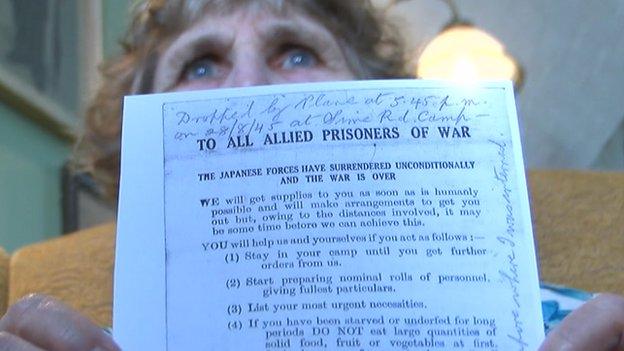
Olga Henderson still has one of the leaflets that was dropped on the camp
After three years of suffering in Changi, it was several days after VJ Day that Olga Henderson even realised the war was over.
The joyous news was dropped on the notorious internment camp from a plane - and she has kept one of the leaflets containing the revelation in her possession for 70 years.
In February 1942 she lived in Johor Bahru, in British Malaya, with her parents and three siblings when, along with Singapore, it was invaded by the Japanese.
As a 10-year-old, Olga Morris - as she was then known - and her family were forced to walk 17 miles without water to the centre of Singapore, then on to Changi.
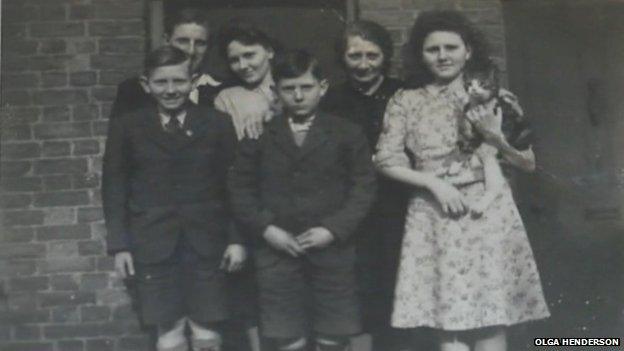
Olga (holding a cat) with her family after the end of World War Two
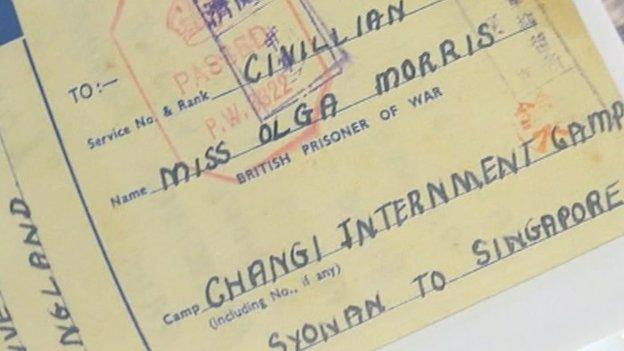
British Prisoner of War identity papers belonging to the young Olga Morris
Her memories of that time remain extremely vivid.
"We had to go over a bridge. There were nine heads on this bridge, all on spikes. I can still see two of them."
It was a deterrent for those people who did not behave, recalled 83-year-old Mrs Henderson, who now lives in Eastbourne, East Sussex.
The family was split into separate camps in Changi - her father was taken to the men's camp at a military base called Selerang, where Allied soldiers were also held.
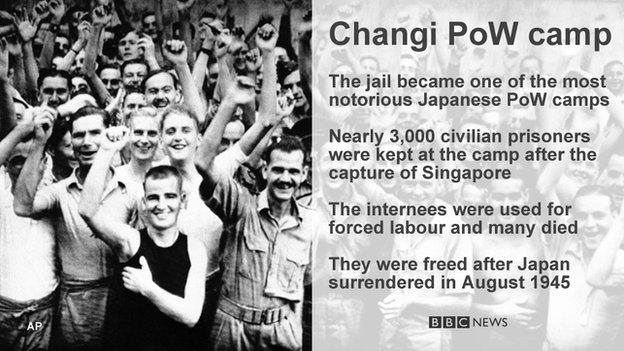
Mrs Henderson went to the women's jail with her mother, older sister and two younger brothers.
Nearly 3,000 civilians were held in Changi, which was originally built to hold a quarter of that number, and the conditions were appalling.
"There was nowhere to sleep, it was just concrete floors," Mrs Henderson said.
"You always had boils, and sores under your armpits and you had to walk about with your hands on your hips - because they were too sore. Your head was full of nits."
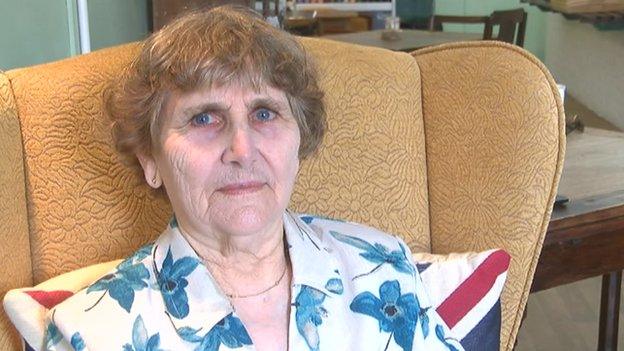
Mrs Henderson said the conditions inside the internment camp were appalling
There were, however, some good times in the camp, as one of the internees decided to start a Girl Guide group, which would meet once a week in a corner of the exercise yard.
To relieve the boredom, and as a surprise birthday present for their guide leader, the girls met in secret and sewed her a patchwork quilt using hexagonal scraps of material they had found, and needles and thread belonging to Mrs Henderson's mother.
"It was being naughty, but we were enjoying it. The Japanese didn't like anything unusual," she said.
She was 13 by the time the Japanese surrendered to the Allies on 14 August 1945, but it was to be several days before she realised the war was finally over.
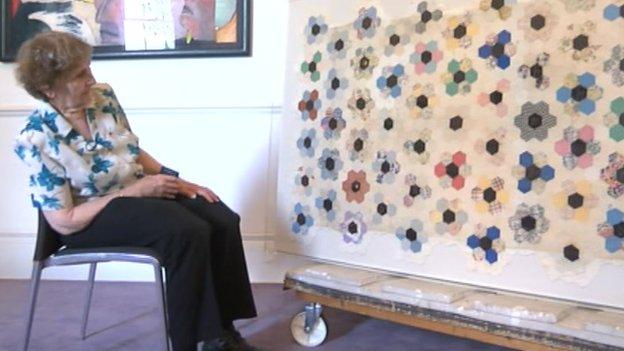
Mrs Henderson with the Changi Quilt she helped to make, now at the Imperial War Museum
Hundreds of leaflets announcing the news and arrangements for the welfare of prisoners were dropped on to the camp, and "everyone rushed to grab one".
"To see it in writing was wonderful... us children were pushing each other out of the way trying to get one as they fluttered down," Mrs Henderson said.
- Published15 August 2015
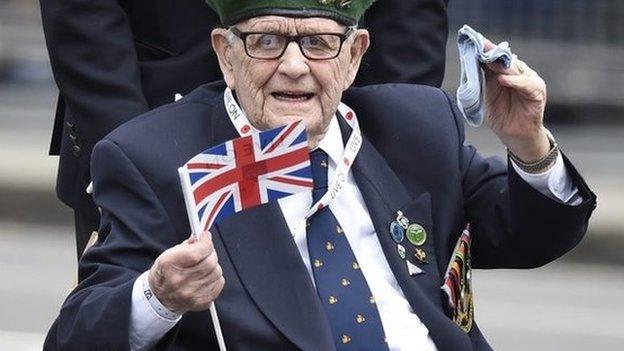
- Published13 August 2015
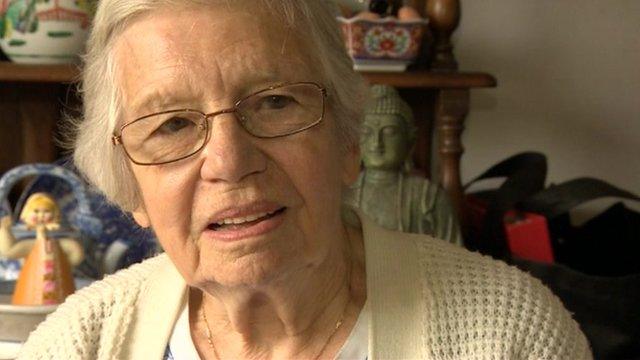
- Published13 August 2015
